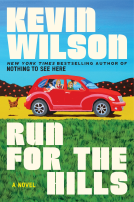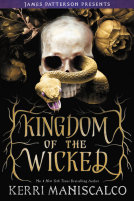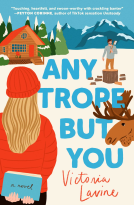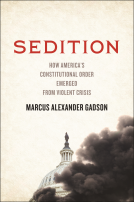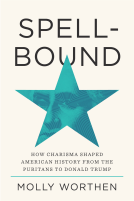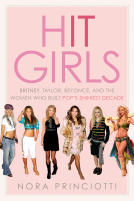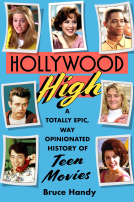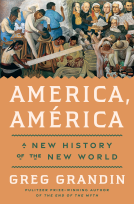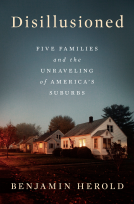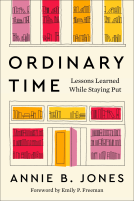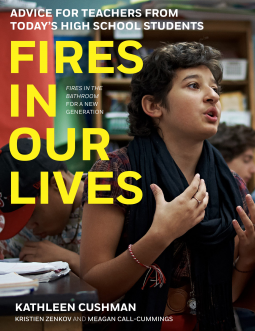
Fires in Our Lives
Advice for Teachers from Today’s High School Students
by Kathleen Cushman; Kristien Zenkov; Meagan Call-Cummings
This title was previously available on NetGalley and is now archived.
Send NetGalley books directly to your Kindle or Kindle app
1
To read on a Kindle or Kindle app, please add kindle@netgalley.com as an approved email address to receive files in your Amazon account. Click here for step-by-step instructions.
2
Also find your Kindle email address within your Amazon account, and enter it here.
Pub Date Mar 02 2021 | Archive Date Mar 03 2021
Talking about this book? Use #FiresinOurLives #NetGalley. More hashtag tips!
Description
The context in which adolescents are learning has shifted radically since students first offered blunt advice to high school teachers in the groundbreaking Fires in the Bathroom, a perennial bestseller. Now their world is changing at warp speed, and classrooms too are seething with anxiety. This sequel raises the voices of diverse youth around the nation as they live through the mind-bending quandaries of this era and ask their teachers to notice.
In Fires in Our Lives, Kathleen Cushman and her co-authors Kristien Zenkov and Meagan Call-Cummings (both leaders in bringing student voices to teacher education) present new first-person testimony on how today's youth experience the risks and challenges of high school. The students who speak here need their teachers more than ever as they navigate cultural, social, and political borders in their communities. Reinforced by classroom examples and supplemented with helpful takeaways, Fires in Our Lives offers a compelling dialogue about students' emotions, ideas, and developing agency.In a world that sorely needs the thoughtful participation of its rising generation, this new staple belongs on every high school teacher's bookshelf.
Advance Praise
"Once again, Cushman and her colleagues turn to the experts we are least likely to hear from––kids––to inform us about what’s working in schools and what’s not. As you read about their experiences and perceptions I hope you will feel as compelled as I do, to take action to support them."
—Pedro A. Noguera, PhD, Emery Stoops and Joyce King Stoops Dean, Rossier School of Education, University of Southern California
"We now know how desperately students and educators yearn to be with, to be in community, to learn and teach in intimate relations. This volume may be the lantern we need to carve new paths in the history of education, refusing to ‘go back to the normal’ that was deadening all of us––students and teachers, and democracy alike."
—Michelle Fine, Distinguished Professor of Critical Psychology and Urban Education, The Graduate Center, CUNY
Available Editions
| EDITION | Other Format |
| ISBN | 9781620975435 |
| PRICE | $24.99 (USD) |
| PAGES | 256 |
Featured Reviews
I wish that some of the veteran teachers that I know would read this. I think after teaching so many years, we disconnect from the students. We aren’t sure what is relevant in their lives or know how to connect with them. Luckily, it is only my 6th year teaching so I still feel connected to what is important to the students. This was a wonderful illustration of what is important and the different demographics that were studied. This must have taken so much work, I commend the researchers!
I first read Fires in the Bathroom years ago when I first started my teaching career. I was eager to read this new volume, to see what the authors had to say about kids today. It is a book that will make you reflect- obviously, that is its intended purpose, but I think it will make each teacher reflect a little different based on their circumstances.
When I read Fires in the Bathroom, I was apprehensive. I was teaching in a small rural high school that I felt had no connection to what was going on in the kids' lives in that book. But the book made me cognizant of students and their perspectives. Fires in Our Lives is the same; it renewed my focus on students and to approach things from their perspective. As a teacher, that can sometimes be a bit controversial. After all, we've been in their shoes, and we have the degrees. However, so much of our feelings and thought processes from our time in school have eluded us now.
If this book does anything, it should cause each reader to be a better listener. Students have lots to say, lots of feelings, and lots in their personal lives that shouldn't be dismissed. Just because they may not pay taxes, have a mortgage, have to cook dinner every night for their families, or decide when to do the mundane tasks like having someone come and fix a plumbing or electrical issue, does not mean that they should be dismissed.
You probably won't identify with every student in the book, but every student you have has something to say. Good teaching is about personal relationship, at the end of the day. Personal relationship can pull students in, can help make them passionate and find a purpose.
Let this book renew your soul as an educator and you will walk away more confident and more empathetic.
 James D, Educator
James D, Educator
Back in 2003, Kathleen Cushman published the book, Fires in the Bathroom, which was based on a radical premise: what if an education book drew on the insights of a different kind of educational expert? In this case, she interviewed the kids who were literally lighting fires in the bathrooms and using other creative means to escape education. The book offered insights that teachers like me needed to read, and it moved students to the center of education.
It is interesting to look back on 2003 today: schools were still in a state of shock following the massacre at Columbine High School, but students had not yet turned to activism. Students had cell phones and MP3 players but no iPhones or social media.
I write this to point out that it is time for another Cushman book--a time to listen to students again.
In Fires in Our Lives Cushman fills the first half of the book with interviews from a diverse array of student voices: rural Ohio, Indiana, and Idaho are represented as well as student voices from suburban Virginia and inner-city schools. Students have found their voices in the years since the shootings at Marjory Stoneman-Douglas High School in Parkland, Florida, first on gun violence and now--since the summer of 2020, a time with Cushman was completing the writing of this book--on racial and gender justice. The chapters are organized loosely on topics of individual and group identity, hopes for the future, and current challenges. Complimenting the interviews are hands-on discussion ideas that teachers can take into the classroom.
The second part, "What Youth Can Do" goes into depth about how kids can enhance activism on issues like climate change, community violence, and gender identity, among others. These chapters include both case-studies which feature successful student activists, ideas for incorporating themes into lessons.
Fires in Our Lives isn't merely a collection of student voices. It contains valuable resources that both teachers and students can use to amplify their voices and maximize their impact in their schools and communities.
Special thanks to NetGalley and the publisher for providing me with a free copy in return for an honest review.
